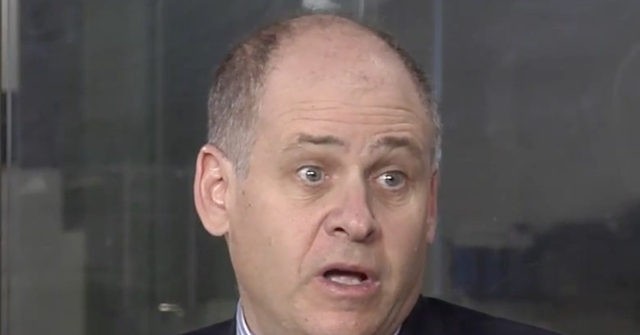On CNN’s “The Situation Room,” political analyst Jonathan Alter discussed President Donald Trump’s growing popularity in recent polls, attributing this trend to a general lack of understanding about the implications of “fascism” among voters. The conversation arose after host Wolf Blitzer presented data indicating that nearly half of the surveyed population considers Trump a fascist, yet simultaneous polling showed a tightly contested race between Trump and his opponents, tied at 47% each. Alter noted this contradiction, emphasizing the precariousness of the country’s political landscape and the profound implications of a potential Trump presidency.
Alter stressed the urgency of the current political moment, warning against the rise of crony capitalism and an oligarchy that could lead to an “American Putin.” He pointed out Trump’s admiration for authoritarian figures like Vladimir Putin, suggesting that this relationship raises significant concerns about the direction of American democracy. Alter articulated his dismay at the normalization of such sentiments, especially when influential figures, including Trump’s former chief of staff and high-ranking military officers, have labeled him a fascist. This designation, according to Alter, should not be taken lightly; it reflects patterns of behavior reminiscent of historical tyrants.
To further emphasize his point, Alter alluded to historical atrocities perpetrated by dictators like Adolf Hitler, asserting that a clear understanding of the past is crucial for voters today. He called for a critical examination of Trump’s actions and rhetoric, as well as the potential consequences of electing someone he deemed “entirely unfit” for the presidency. Alter argued that education on political history might provide voters with clarity regarding the severity of the situation and the potential loss of democratic principles.
Alter’s remarks reflect a broader concern about the political discourse surrounding Trump. He advocated for a shift in focus from traditional political horse races to a deeper consideration of the implications of electoral choices on the nation’s future. Instead of merely tracking polling numbers, Alter urged citizens to become more engaged and aware of what is at stake in the electoral process. He expressed hope that voters would come to understand the realities of the current political landscape and the threats posed by authoritarianism.
The discussion highlighted Alter’s fears regarding the erosion of democratic norms and the complacency that many Americans may feel amid Trump’s popularity. He called for heightened awareness and participation among the electorate, stressing that inaction could lead to dire outcomes for the country. By likening the situation to historical instances of fascism, Alter aimed to provoke thought and inspire a sense of urgency among voters as they approach upcoming elections.
Ultimately, Alter’s commentary serves as a reminder of the responsibilities that come with citizenship in a democracy. He encouraged viewers to look past surface-level political narratives and engage more profoundly with the implications of their electoral choices. In his view, meaningful political participation is essential in safeguarding the nation’s values and preventing a slide into authoritarianism, which he believes could be on the horizon if voters do not carefully consider the ramifications of re-electing Trump.

